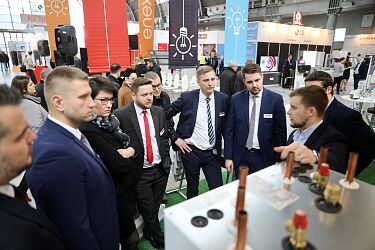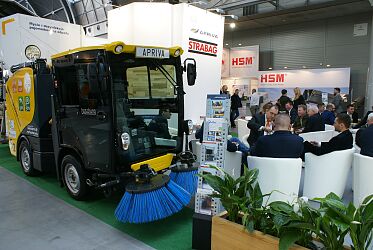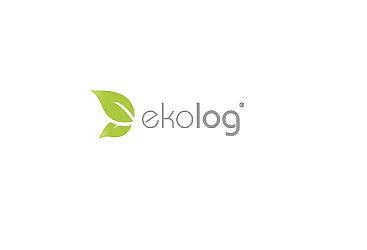News

Special recommendations for the municipal services business sector
Communal services sector has to do without a special act, good practice is the only thing they can resort to.
The Act of 2 March 2020 (Journal of Laws 2020, item 374) on specific solutions related to the prevention, counteraction and combating of COVID-19, does not provide for any specific solutions or guidelines for the municipal industry.
- At the moment we do not know how to handle municipal waste from persons in quarantine. We have not been informed known whether it is possible to let drivers coming from abroad enter the depots so that they can collect waste, if they are not in the quarantine regime. Handling regime of our employees’ used gloves and masks has not yet been defined. We are aware of the fact that there is a great number of doubts. We do realise it would have been difficult to plan ahead and find a solution. That is why experiences sharing and common sense and experience use are so important - said Magdalena Sułek Domańska, ENERIS communication director and the Health and Safety Coalition coordinator.
Below you will find a handful of practical solutions.
- Organisational workflow management: companies decide to introduce the most important changes regarding their workflow management One of Lubuskie installations is the example here - a one-shift operation mode has been introduced, although the shifts have been temporarily extended up to 10 hours (the system rules: 1 week - shift 1, the other week - shift 2). In the event of an employee who has been tested positive for coronavirus and a home quarantine injunction for all persons who have come into contact with the infected, a second shift makes it possible to maintain the plant's continuity. Waste collection companies are considering the same solution. However the introduction of such work rota is much more difficult, time-consuming and cost-intensive because it requires a written consent of the municipality and changes in contracts which was entered into under the Public Procurement Law.
- Offices access: many of the companies decided to separate employees and non-employees physically. Sometimes this is a reception officer on duty who decides whether the matter is important and requires a personal contact of the person who has come (instead of the preferred telephone or email contact). And if personal contact is necessary, the employee is informed. Another solution - physical separation of the Customer Service Office (BOK) employees - there is a bench which prevents a person approaching too close. Also a window pane or operation through a window on the weight-bridge is another solution. However, if a guest is granted access to the building, a guest is often required to disinfect their hands (dispensers with the agent are usually located in front of the entrance to the buildings).
- Employee amenities:employees should minimise their activities in employee amenities to an absolute minimum - this refers to changing rooms (where people speak to one another before and after the shift), corridors in front of the dispatch room and other common areas. Droplet virus transmission, prolonged contact with an infected person increase the risk of exhaling infected droplets into the air which drop on clothing or hands. It is worth contacting others by phone or email wherever possible.
- Laundries: we sensitize people responsible for maintaining work clothes cleanliness - they should be extremely careful when handling clothing and consider commissioning more frequent work clothes washing. Studies suggest that coronaviruses (including preliminary information on COVID-19) may persist on surfaces for several hours or even several days - this depends on different conditions (e.g. surface type, temperature or humidity). The most important guidelines: limiting the number of people who may come into contact with clothes, proper storage of dirty work clothes outside the locker rooms, clothing transport in tightly sealed bags.
- Workplace disinfection: companies have already provided their employees with soap and water or disinfectants in toilets. It is important to remember about disinfecting workstations. Tops or tables should be sanitized after each day with a minimum 60% alcohol (but not more than 70%) disinfectant solutions. Drivers should be equipped with disinfectant fluid (e.g. to be used for the steering wheel). A container should be constantly refilled.
Installations management require good practice introduction - disinfection with UV lamps in the sorting booths (dual-purpose lamps allow people to work in the room). - Masks, gloves: according to the Chief Sanitary Inspector’s recommendations, healthy people should not currently wear face and mouth masks. Hence, external drivers are usually not required to wear gloves or masks at the moment, provided that they provide adequate isolation and do not mix with the Clients Service Office employees and people working in the yard (outside the office service, service through the window, other employee barriers). There is an exception however when a driver demonstrates typical coronavirus infection symptoms, e.g. coug (which may be a symptom of a common cold or an allergy). A driver should not be allowed into the building and served inside, unless they put on a mask and gloves. However, if municipal companies’ employees are required to wear personal protective equipment in other establishments, these should be adapted to special recommendations. Employees should be equipped with proper means (please note - if such restrictions have already been introduced, do not forget to notify your contractors in advance so that they can properly equip their employees).
It is worth remembering about gloves - there is a proper way to take gloves off and get rid. Otherwise all the efforts are useless. Remember not to touch the outside part of the glove - short instructional video shows how to do it.
- Used materials containers: it is important to prepare a separate container for used gloves and masks available at the depot. This kind of waste is regarded hazardous. This requires appropriate such waste handling.
- Foreign travel verification: there is another good practice - to check the potential threat. This should me made in writing when at the depot (regardless whether outsiders or returning employees) by completing special surveys. Brief information on whether a person has recently travelled abroad and their contact details will help any company to introduce preventive schemes.
- Isolation unit: Although it may seem premature, it is worth considering having a isolation room in case one of the employees demonstrates disturbing symptoms and is required to wait for the appropriate sanitary services arrival. Such a room should preferably be equipped with a window or other type of ventilation, so that after the room is vacated, not only can it be washed but also ventilated.
- Room disinfection: if necessary to disinfect a room or a vehicle cabin, health and safety services recommend using the services of professional companies which deal with disinfection processes. This minimises the infection risk because of employees’ non-compliance with the proper disinfection rules.
In case of problems with the service outsourcing, it is worth preparing guidelines regarding disinfection outfit, including equipment elements required: chemo-protective rubber boots, goggles or hand sprayers.
- Suspended periodic medical examinations, preliminary medical examinations are valid: in accordance with the Chief Labour Inspector official position on Occupational Medicine (preliminary and periodic examinations) and OHS, the obligation of periodic medical examinations has been suspended until the SARS-CoV-2 virus epidemic threat is over. The act has maintained the obligation to issue a referral for periodic medical examinations. However, the obligation not to allow employees to work without a medical certificate which indicates no contraindications to operate work in a particular position was retained . An employee is obliged to receive such a certificate at initial preventive medical examinations. When it comes to Occupational Health and Safety training - a general instruction in the form of guided self-education or a seminar with the use of electronic means of communication in particular (video and audio transmission on-line option) is the preferred form now. Employees should be e-mailed a set of necessary materials enabling them to become familiar with the basic occupational health and safety regulations contained in the Labour Code.
Education - important information
Every day we see and hear new information on the coronavirus research progress as well as general guidelines for lawyers, doctors, government officials and epidemiological experts.
- It is worth following the World Health Organization website in the context of the latest global indications regarding the combat against coronavirus spread. We also recommend the Polish website pl/koronawirus.
- Answers to questions whether you can measure employee’s body temperature and similar can be found on the website Gazeta Prawna.
- The website of the Office for Personal Data Protection offers information about official position regarding compliance with the Personal Data Act during a pandemic period.
- The latest text on the National Labour Inspectorate website explains the rules for remote work.
The Coalition for the Municipal Service Employees Safety (the so-called Health and Safety Coalition) is the initiative established in March 2019 - it is objective is to increase the municipal service companies’ employees’ safety enhancement. OHS support for companies and organisations which do not have independent OHS resources is also one one of the objectives. In addition, the Coalition has been a response to the lack of public awareness of the threats posed by garbage trucks. Creation of standards for crisis behaviour (e.g. in the event of a garbage truck accident or fire) is also on the agenda.
(JN)








